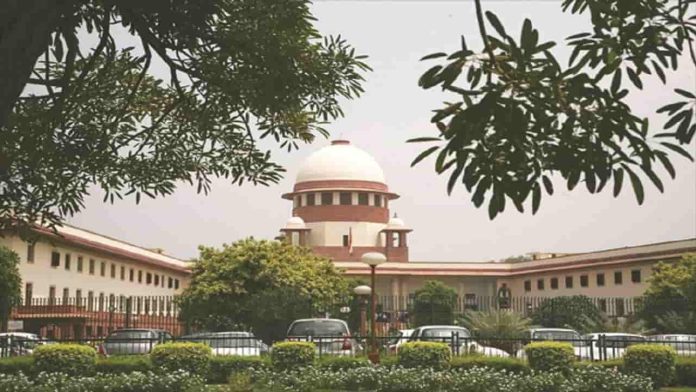Taking in view the crashing of Indian stock markets following a report by the US-based short selling firm Hindenburg Research affecting the share prices of Adani group, the Supreme Court on Friday directed the Union Government and the Securities and Exchange Board of India (SEBI) to suggest ways for improving the regulatory mechanism for the protection of Indian investors.
The Bench of Chief Justice of India D.Y. Chandrachud, Justice P.S. Narasimha and J.B. Pardiwala further proposed setting up of an expert committee to give suggestions on strengthening the regulatory framework.
The Apex Court directed Solicitor General Tushar Mehta, who appeared for SEBI, to take instructions from the Ministry of Finance and listed the matter for further hearing on February 13.
The top court of the country was hearing two petitions seeking investigation into the report published by Hindenburg Research, which led to the Indian share market experiencing a downward trend after the share prices of Adani group companies fell sharply.
One was filed by Advocate Manohar Lal Sharma seeking directions to SEBI and the Ministry of Home Affairs (MHA) to conduct an inquiry and register a First Information Report (FIR) against founder of Hindenburg Research, Nathan Anderson, and his associates in India for its recent report on Adani Group.
The second was filed by Advocate Vishal Tiwari, seeking inquiry into the Hindenburg report by a committee headed by a retired judge of the Apex Court.
The Supreme Court told the SG to devise ways for protection of investors.
Stating that SEBI was probably also doing its investigation, the Bench asked the SG regarding steps to protect the investors, in case the value of shares got depressed due to short-sale.
The top court of the country noted that if it happened on a short scale, nobody would notice. But if this happened on a large scale, as was happening currently according to some reports, the total loss suffered by the Indian investors could go in the range of several lakhs of rupees.
The Apex Court then told the SG to take directions regarding a robust mechanism to protect the investors, especially when the capital was moving in and out of the country seamlessly.
Stating that the loss was estimated to be over Rs 10 lakh crore, the Court sought steps from the SG to ensure that this was not repeated in the future.
While noting that it could not enter the policy domain beyond a certain stage, the Supreme Court suggested the SG to consider setting up an expert committee to ensure the security of Indian investors.
The Government could then take a call as to whether some modification was required of the statute, it added.
The Bench said that experts could be drawn from the securities market and international banking sector in the committee, which could also have a former judge as a guiding figure.
Stating that the Indian stock market ran high on emotions, it said it would not make more suggestions.
The top court of the country directed the SG to submit a framework by the next date of hearing.


